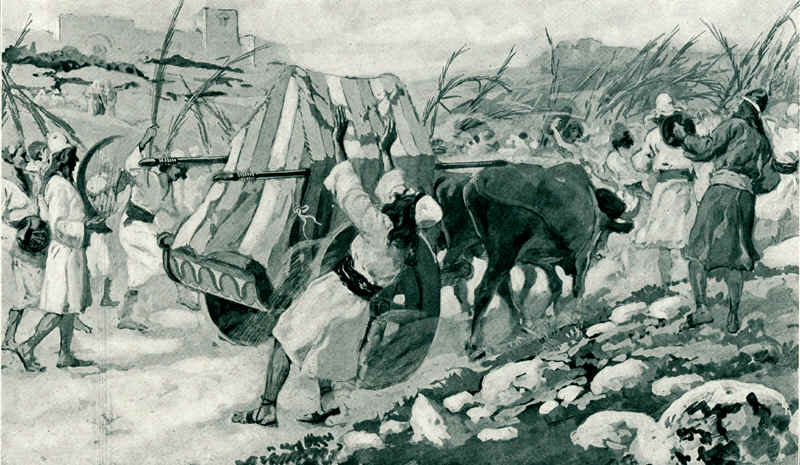In conclusion on the whole chapter—
The end of the matter; all has been heard.
Fear God and keep his commandments, for this is the whole duty of man.
(Ecclesiastes 12:13)
Footnotes
- ^ Richard Barcellos. Definition of Key Terms and Phrases. pp. 1-2. http://www.1689federalism.com/wp-content/uploads/2014/11/Barcellos_LawWritings.pdf
- ^ Ibid. p. 2.
- ^ Ibid. pp. 2-3.
- ^ Many Scriptural references have been supplied by Samuel Waldron’s Modern Exposition of 1689 Baptist Confession of Faith which was apparently supplied by the Westminster Confession of Faith 1646.
- ^ William D. Mounce. Physis.
- a, b, c, d, e, f, g, h, i, j, k, l, m, n, o, p Albert Barnes. Barnes’ New Testament Notes. Taken from the TheWord Bible Software. In loc.
- a, b, c, d, e, f, g, h, i, j, k, l, m, n John Calvin. Commentaries. Taken from the TheWord Bible Software. In loc.
- a, b, c, d, e, f John Gill. Exposition of the Entire Bible. Taken from the TheWord Bible Software. In loc.
- ^ Philip S. Ross. From the Finger of God: The Biblical and Theological Basis for the Threefold Division of the Law. (Fearn, Ross-shire, Scotland: Christian Focus, 2010). pp. 114-115.
- ^ Ibid., p. 111.
- a, b, c, d bid., p. 108
- ^ Ibid. pp. 109-110.
- ^ Ibid. p. 159.
- ^ Ibid. p. 282, note 65.
- a, b, c, d, e, f, g, h, i, j, k, l, m The Westminster Larger Catechism.
- a, b, c Thomas Watson, The Ten Commandments. Chapter 1.3.
- ^ Calvin, Institutes, 2.8.15
- a, b, c Watson, Ten Commandments. Chapter 2.1.
- ^ Calvin, Institutes. 2.8.16.
- ^ The Athanasian Creed.
- ^ Robert L. Dabney. Systematic Theology. (Edinburgh: Banner of Truth Trust, 1985, originally 1871). p. 358. Scripture references have been modernized in all citations.
- ^ Ibid., p. 361.
- ^ Calvin, Institutes, 2.8.17
- a, b, c, d, e, f, g, h, i, j Benjamin Keach. The Baptist Catechism.
- a, b Watson, Ten Commandments. Chapter 2.2.
- ^ Thomas Vincent. A Family Instructional Guide.
- ^ Pastor Joe V. Why Did John Calvin and the Reformers Forbid All Images of the Divine Persons?
- ^ John Murray. Pictures of Christ and the Second Commandment
- ^ The Holy Bible: English Standard Version: The ESV Study Bible. Wheaton, IL: Crossway Bibles (2008). Taken from the Online Version at www.esvbible.org. in loc.
- a, b, c Watson, Ten Commandments. Chapter 2.3.
- ^ I will at least be reading the 4 perspectives book on the Sabbath, Robert Paul Martin’s new book on the Christian Sabbath, Joseph A. Pipa’s The Lord Day, various writings from Dabney on the Sabbath, Jonathan Edwards and I hope also to read some from A.W. Pink and Owen.
- a, b, c Watson, Ten Commandments. Chapter 2.4.
- a, b Chapter 2.5.
- ^ Calvin, Institutes. 2.8.38
- ^ Noah Webster. Webster’s Dictionary 1828. Murder.
- ^ Noah Webster. Webster’s 1913 Dictionary. Kill.
- ^ J. Warner Wallace. The Difference Between Killing and Murdering.
- ^ Dabney, Systematic Theology. p. 400.
- a, b Watson, Ten Commandments. Chapter 2.6.
- ^ Dabney, Systematic Theology. p. 407.
- ^ Joseph Henry Thayer’s Greek Definitions. Taken from the TheWord Bible Software. G4202
- ^ Calvin, Institutes 2.8.45.
- a, b Watson, Ten Commandments. Chapter 2.8.
- ^ Calvin, Institutes 2.8.47.
- ^ The ...










